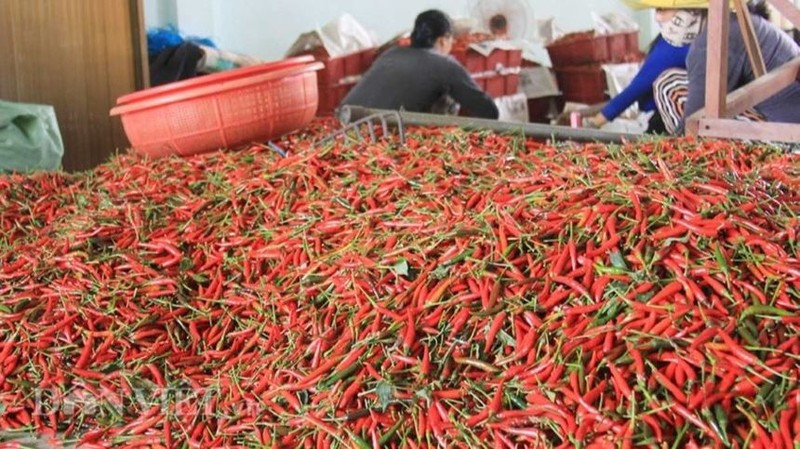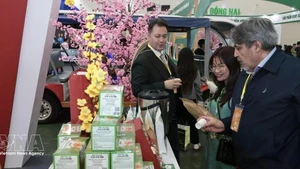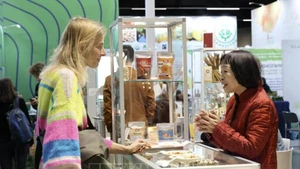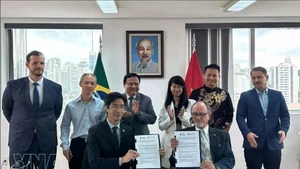The move is among activities on the sideline of the official visit of General Secretary and President of China Xi Jinping to Vietnam from April 14 to 15.
Accordingly, the ministry signed protocol on phytosanitary requirements for chilli exported from Vietnam to China; protocol on phytosanitary requirements for passion fruit; protocol on safety and animal and plant quarantine requirements for rice bran and defatted rice bran used as animal feed ingredients; protocol on quarantine, inspection, and veterinary hygiene requirements for raw and cleaned bird’s nest products.
Additionally, the ministry signed a Memorandum of Understanding on environmental protection cooperation with the Government of Guangxi Zhuang Autonomous Region, China. The Vietnam Administration of Seas and Islands hosted the agreement on joint research and integrated management on the environment of the Gulf of Tonkin’s islands. The Vietnam Department of Geology signed a Memorandum of Understanding with the China Geological Survey on geoscientific cooperation.
China remains Vietnam’s largest export market, and Vietnam is China’s biggest trading partner within ASEAN. In 2024, Chinese consumers spent 4.6 billion USD on Vietnamese fruit and vegetables. Among these, durian took the lead with over 2.84 billion USD, followed by dragon fruit at around 320 million USD, bananas at 220 million USD, and jackfruit at 240 million USD.
Currently, fourteen Vietnamese agricultural products are officially exported to the Chinese market, generating billions of US dollars in annual revenue. Of these, six products have had signed export protocols, including watermelon, mangosteen, black jelly, durian, fresh banana, and sweet potato, while six traditional products are yet to be standardised by export protocols, including dragon fruit, rambutan, mango, lychee, longan, and jackfruit. Passion fruit and chilli are currently being exported on a pilot basis.
To date, the two countries have signed 24 memoranda of understanding and export-import protocols on agricultural, forestry, and fishery products. In 2024, four protocols have been signed, including: protocol on the export of frozen durian; protocol on the export of crocodiles; protocol on the export of monkeys which was signed during the visit of Vietnamese General Secretary and President To Lam to China on August 18–20, 2024; and protocol on the export of fresh coconut which was signed on June 6, 2024 during a working visit by leaders of China’s General Administration of Customs.
















